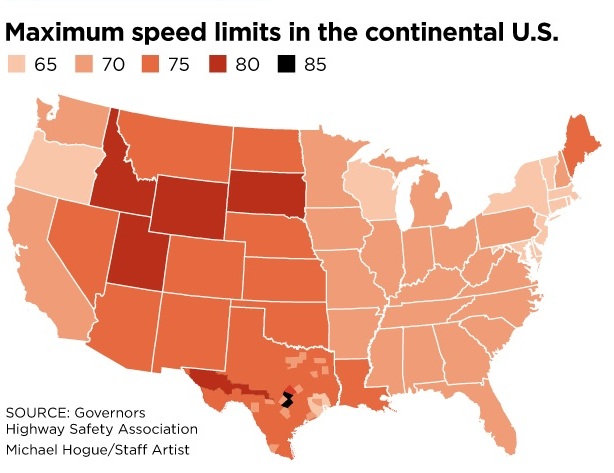Are Big Rigs Going Faster Than Their Tires Can Support?
May 4, 2015 | Category: Tire Failures | ShareAs we drive along the nation's many highways, we often, if not always, see at least one big rig (semi) truck. When accidents happen involving big rigs, the results are usually devastating.
On April 22, 2015 five Georgia Southern University nursing students were killed in an accident with a big rig truck on Interstate 16. In a News12 report, "Georgia State Patrol says a tractor-trailer did not slow down, and smashed into backed up traffic on Interstate 16. They say the tractor trailer slammed into an SUV, car, and tanker truck. The students were in the car, and it burst into flames after being crushed."
"This is just one example of what happens when a vehicle is involved in an accident with a big rig truck. There are a lot of different causes of big rig accidents, many of which involve the speed with which the truck is travelling," said Fort Myers Truck Accident Attorney, Randall Spivey of Spivey Law Firm, Personal Injury Attorneys, P.A.
The Associated Press (AP) reported in March 2015 that most of the big truck tires are not designed to go over 75 mph. However, many interstate highways have speed limits of 75 mph or more. Road Safe America and the American Trucking Associations (ATA) petitioned the U.S. Department of Transportation (DOT) almost ten years ago asking that speed governors (limiters) be set at 65 mph.

ATA spokesman, Sean McNally, said in an April 20, 2015 Atlanta Journal article, that about 70 percent of trucking companies already have speed limiters on their rigs. The rule would stop the rest from putting other drivers at risk. The Atlanta Journal further reported that nearly all truck tires were built for a maximum sustained speed of 75 mph since the middle of the last decade. This was when the maximum speed limit was 65 mp
The Dallas News reported that tire experts and safety advocates say that habitually driving faster than a tire's rated speed can generate excessive heat which damages the rubber, with potentially catastrophic results. “It’s a recipe for disaster,” said James Perham, president of Extreme Transportation Corp., an automobile-hauling company near San Diego. The firm filed a complaint with regulators about Michelin tires after seven blowouts caused an estimated $20,000 to $30,000 in damage to its rigs. In February the NHTSA (National Highway Traffic Safety Administration) closed the investigation into blowouts involving certain Michelin tires after determining that truck operators, not the tires, were at fault. An investigator wrote that exceeding the 75 mph rating was the most likely cause in all 16 complaints examined. The blowouts which were investigated resulted in three crashes but no injuries.
Road Safe America says that only 1 percent of vehicles on the highway are big rigs; however, 18 percent of fatal multi-vehicle crashes involve big rigs. An 80 thousand pound truck going 70 mph is equivalent to an average car going 361 mph.
The comparative numbers are staggering. Requiring speed governors, according to experts, should help reduce accidents involving big rigs.
Fort Myers Truck Accident Attorney, Randall L. Spivey is a Board Certified Trial Attorney – the highest recognition for competence bestowed by the Florida Bar and a distinction earned by just one (1%) percent of Florida attorneys. He has handled over 2,000 personal injury and wrongful death cases throughout Florida. For a free and confidential consultation to discuss your legal rights, contact the Spivey Law Firm, Personal Injury Attorneys, P.A., in Lee County at 239.337.7483 or toll free at 1.888.477.4839,or by email to Randall@SpiveyLaw.com. Visit SpiveyLaw.com for more information. You can contact Spivey Law Firm, Personal Injury Attorneys, P.A.in Charlotte County at 941.764.7748 and in Collier County 239.793.7748.

